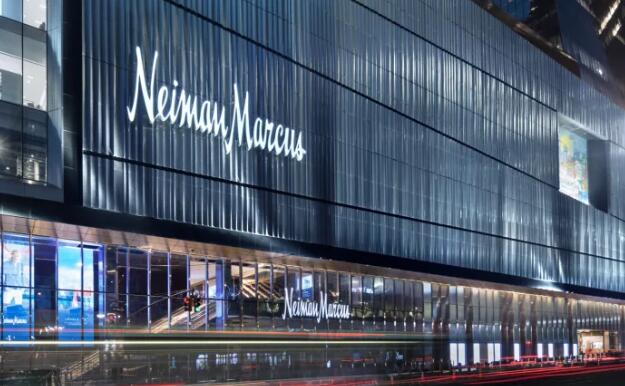Neiman Marcus Group Says Luxury Demand Boosted Business Above Pre-Pandemic Levels
Neiman Marcus Group (NMG), which owns Bergdorf Goodman, reported on Tuesday that it saw comparable sales growth of over 30% compared to this period last year, surpassing pre-COVID benchmarks.
NMG’s CEO Geoffroy van Raemdonck said that the company’s “Revolutionizing Luxury Experiences” growth strategy is already seeing strong results. The retailer saw comparable GMV growth, or total sales value over a period of time, in the high 20% range versus pre-pandemic 2019. Strong full-price selling also contributed to a strong margin expansion over 300 basis points.
“Our performance reflects continued strong growth … as well as a healthy U.S. luxury customer,” van Raemdonck said in a statement. “While we continue to operate in a dynamic environment, we believe we are well positioned for the future with our differentiated integrated luxury retail model, healthy balance sheet, and strong customer and luxury brand relationships.”
NMG is a private company that does not share full financial performance results, though the company does often provide periodic updates. Last month, Farfetch closed a new minority common equity investment of $200 million in NMG.
NMG said it plans to invest in four specific arms to further its growth: Experimental store concepts and renovations, online perfomance, a loyal and new luxury customer base and its internal working culture.
NMG plans to invest more than $300 million in store experiences and renovations
According to van Raemdonck, almost half of Neiman Marcus stores are experiencing all-time high sales volume. At Neiman Marcus, sales of the top 20 brands grew 70% over pre-pandemic levels. Men’s growth exceeded 60%. Women’s shoes grew by over 50% and handbags grew by over 70%
Bergdorf Goodman is also beating 2019 sales numbers, thanks to the surge in occasion dressing and recovery in NYC and tourism. Handbags were up almost 80% and shoes netted a 60% increase. Fine apparel up was over 30%.
For online growth, NMG said it would utilize the Farfetch Platform Solutions (FPS) technology to re-platform Bergdorfs, which will “seamlessly integrate” with the retailer’s iconic New York City flagship. Both Bergdorf Goodman and Neiman Marcus will also join the Farfetch Marketplace as a partner.
With regard to culture, NMG is exploring establishing various “corporate hubs” as opposed to having employees stationed at its one major headquarters in Dallas, Texas. The company said that most of its corporate workforce will remain in Dallas, where the retailer’s three floors of office space will continue to exist on top of its store there, with the option for some workers to primarily work out of new hubs in cities that have yet to be disclosed.
Neiman Marcus Group allowed employees to work fully remotely for two years. The company has said that this flexible working policy has boosted employee retention and happiness. The luxury department store chain said that its goal is to allow employees to determine their work schedules and office set-ups to maximize effectiveness.
